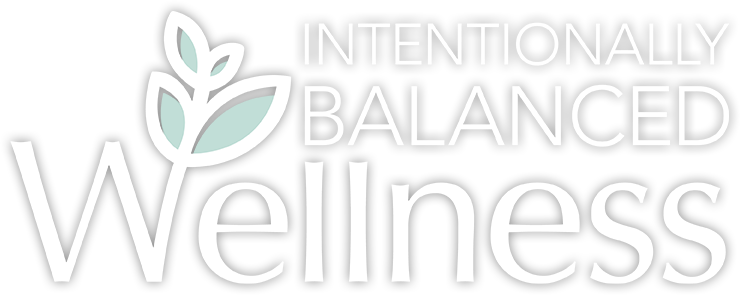What do you do when you have a nagging health problem that doesn’t go away and seems to be getting worse? You know something is off and you just want to feel better. You go to the doctor hoping for a fix. The doctor gives you a diagnosis and prescribes medicine. You feel a little unsatisfied because you don’t want to start a lifetime of medicine so you ask if making any changes to your diet or lifestyle will help. The doctor says your diet and lifestyle don’t play a role in this, it’s just bad genes or part of aging. You’re told it’s normal. You leave the doctor’s office feeling trapped because they don’t understand holistic wellness.
The truth is, diet and lifestyle play a huge part in your health and quality of life.
We often think of health and wellness as being the same thing, but did you know they actually have different meanings?
Health is the state of being free from illness or injury.
Wellness is the act of practicing healthy habits on a daily basis to thrive not just survive physically and mentally.
Wouldn’t you agree you want to achieve health? Now you understand you have to practice wellness daily to get there! Including all areas of your life in your wellness practice to thrive physically and mentally is where traditional medicine falls short and holistic wellness fills in the gaps.
What is holistic wellness?
Holistic wellness is an approach to medicine that addresses the whole person and all areas of their life including physical, mental/emotional, spiritual and social. It’s a way of teaching you how to practice healthy habits to heal and thrive. Holistic wellness practitioners have been trained to spend time asking specific questions to find the root cause for each person’s health problems.
You have to remove the root cause to get well.
That is exactly what holistic wellness is… root cause resolution. Holistic wellness allows practitioners to practice in a way that digs deep into a person’s lifestyle to find the cause and remove it for healing.
Holistic wellness is a way of using tools provided on this earth as medicine to seek out the root cause of symptoms and address a person as a whole, not just a set of symptoms. Seeing each person individually and not just a set of symptoms is what sets holistic wellness apart from traditional medicine.

How is holistic wellness different from traditional medicine?
The difference in traditional medicine and holistic wellness is in the approach.
Traditional medicine is symptom management and medicine based. You go to the doctor when you have a problem, get prescribed a medicine, go back to the doctor when that medicine isn’t working anymore, or you have another problem, then repeat the cycle.
If that doctor doesn’t know the answer, he/she will refer you to a specialist. Traditional medicine sees the body as separate systems that don’t interconnect, therefore specialists are needed for each system. When you have a health concern with one system, traditional medicine sees this as a problem only in that system.
If you have a problem in multiple systems (which is the case most of the time), traditional medicine recommends you see each specialist. It would be really helpful for those specialists to discuss your situation to come up with a plan together, but unfortunately they don’t.
You are now seeing multiple specialists, and you are on multiple medications. You feel even more trapped and discouraged by your bad and aging genes because you have been told on several occasions that your diet and lifestyle won’t change anything.
Holistic Wellness Is Different.
The word holistic is defined by Oxford Languages as: characterized by the belief that the parts of something are interconnected and can be explained only by reference to the whole. In medicine it is defined as: characterized by the treatment of the whole person, taking into account mental and social factors, rather than just the symptoms of an illness.
Holistic wellness practitioners see the body as many systems interconnected into one whole system, rather than separate systems that don’t communicate with each other.
When taking a holistic wellness approach, you are looked at as a whole being, rather than separate parts. You aren’t going to specialist after specialist, one practitioner can help with each symptom. But then again, holistic wellness does not address the symptom; finding the root cause addresses the symptoms.
Each area of your life is addressed because holistic wellness practitioners know the importance of providing the whole body with the tools needed for health to be achieved. If each area in your life is not healed, you won’t find health. For example, you may be suffering from tummy troubles, let’s say you have bad cramping and pain. There could be several root causes but one could be having anxiety from some previous life triggers or trauma. Until you take steps toward emotional and mental wellness, the physical pain isn’t going to go away.
This is how I view the body and how I approach wellness.
The body, to me, is a beautiful creation.
If you really think about the body and study the MANY functions that take place each second just to allow us to live, it is truly a miraculous thing. In my undergraduate degree program, we had to memorize all the steps involved in the digestion of food (don’t ask me those steps now, that memory left me a long time ago). Based on the intricate, multi-faceted, balanced process, it is easy to see that a brilliant God created us.
You don’t have to study the body to realize it is complex and marvelous. It takes a genius designer to design, develop and perfect what we take for granted. We don’t have to think about breathing. We don’t have to think about how to talk (sometimes maybe I should think harder about what comes out of my mouth though…). We don’t have to think about keeping our hearts beating. It all just happens on its own. And, thank God, we don’t have to think about these things!
The body is designed so intricately, yet simple enough to run, that even we can make it run smoothly, and we’ve been given all the tools to make it run smoothly by the creator. The simplicity of it is amazing, yet so complex. At the basic level, our bodies need what the earth provides: oxygen, sunshine, food, and water. These are just the basics of what we need, and they have all been given to us as a gift. They were given to us before we were even created!
I love being a holistic wellness practitioner because every single one of my clients sees results in the first few weeks. Not because of what I’ve done, but because of what God has done.
Women don’t come to me when they have achieved health. I start helping a woman because something in her body system isn’t working properly. The first changes we make are with her diet (because I know its power and because, well…I’m a dietitian at heart) and results are almost immediate. I love being able to show women the power in using the tools God has already provided, because results bring glory to Him.

What are the principles of holistic wellness?
Each holistic wellness practitioner’s approach will be slightly different, but we will all look at each area of your life, knowing that one area can cause symptoms in another area. Expect to discuss each of these topics with your practitioner:
- Diet: What you eat is the building block to everything in your body. Your diet is the foundation to your holistic wellness journey.
- Mental and emotional health: Every cell in your body hears your thoughts. Having imbalances mentally and emotionally can be sneaky and show up as physical symptoms.
- Stress level: Stress will always be there but is your stress causing DIS-stress in your body?
- Lifestyle: There are so many factors in your life that can be causing harm in your body that disrupts multiple systems and causes symptoms with hidden causes.
None of the above areas of life can be neglected to be considered well. The holistic wellness practitioner will help you see your body as one whole system. Each system within the whole talks to the others and addressing only one system will never create health in the whole system.
If working with me, we will first address the basic needs of the body, then I will help you find the root cause of what parts of your whole system aren’t running properly. In your wellness journey with me, we will address your whole system by diving into and balancing all areas of your life. You may need holistic testing that is different from what your traditional medicine doctor will provide. We will then create habits that work for your individual needs.
What are common misconceptions of holistic wellness?
Many people think holistic wellness is quackery, fraudulent and a waste of money. To be honest, when I was young, I thought that could be true. I thought it was a hippy thing that didn’t really work. There were two people that encouraged me to look into naturopathic school while I was in early college. I remember thinking, if I’m going to be a doctor, I’m going to be the real thing, not a quack. Do you ever look back and shutter at how stupid you were!! I wish I had listened then, that is totally the path I would have taken had I seen it then.
Nutrition was the same for me.
I was really intrigued when I heard a dietitian speak for the first time but thought I didn’t want to be seen as being a hippy. I remember telling my mom when I was frustrated with the degree path I had initially chosen in college, that I was really interested in nutrition but didn’t want people to think I was weird (cue eye roll). Man how maturity changes you. Now I welcome the hippy comments! (side note…my birthday is on April 22…Earth Day every year!! It really is very fitting).
Holistic wellness has gotten a bad reputation because of the comparison to traditional medicine. Traditional medicine is used as a quick fix. You take a pill to fix the ill. The only problem is, it doesn’t fix the ill, just covers it up. It doesn’t make the problem go away, you just don’t notice it anymore. It covers up the symptom rather quickly though. Usually within a few days to a week, the medicine kicks in and you feel better. Until the medicine doesn’t work anymore or it causes other problems and you need more medicine.
Holistic wellness is completely different because it creates healing.
When you follow holistic wellness therapies, you are working with your body to get to the root problem and then heal from the inside out. Holistic wellness is not a quick fix. It takes time, sometimes years, to fully heal. There is no pill to fix the ill. Well I guess there are pills that help, supplements. But supplements are supposed to be used for exactly that…as a supplement to complete your healthy diet and lifestyle.
But because it takes time to heal, people think it doesn’t work. They think it’s just expensive and a waste of money. I’ve heard people say the supplements are going to end up in the toilet anyway so why not just flush your money away. The cost of holistic wellness is another misconception.
People think the food and holistic wellness therapies are more expensive. I will admit, my grocery bill is probably more expensive than the average family of five. But if you compare the amount of money spent on food, medical bills, doctors visits, and prescription medicine for my family of five compared with the average American family of five, there is no comparison. In a typical year, we have very few doctor’s visits so we don’t have medical bills, and none of us are on prescription medicines. Most Americans (66%) are on prescription medication. According to the Center for Disease Control, 48.6% of Americans were on at least one prescription medicine in the past 30 days. This statistic was taken from 2015-2018, it’s only gone up since 2020.
The misconception that holistic wellness is more expensive just isn’t true in the long run. You can look at it as a savings plan. It may take an investment to learn and heal, but overall, you will be spending less. Less of everything: money, time, energy and frustration.
The last misconception of holistic wellness I can think of is people thinking it wouldn’t work for them or their symptoms are too bad or aren’t bad enough to invest in themselves and improve their outcome. The practices of holistic wellness are for everyone, whether you have symptoms or not. It is a way of living in which our bodies are designed to thrive. Even your body!

What are examples of holistic wellness?
Your body is intricately made. And your body is uniquely made. What creates health in your body may create chaos in my body. That’s the beauty of holistic wellness. Holistic wellness practitioners are trained to ask specific questions to get to the root problem for each person and help develop an individual plan utilizing multiple healing modalities.
Like I said before, holistic wellness practitioners will/should dive into all areas of your life (and if they aren’t, find a new practitioner if you want to heal completely). Examples of holistic wellness practices will revolve around each area of your life: diet, mental and emotional status, stress level, and lifestyle.
Because each person is uniquely made, thank God, He has provided us with lots of different ways to heal. Within the area of diet alone, there are hundreds of diets, tips and tricks to improve and change your outcome. Working with a knowledgeable holistic practitioner, will help you find the diet that creates health in your own body.
Doing it all on your own, though, is almost impossible.
Think about all the fad diets we have in our society. Each one promises weight loss, healing and a brand new life. Most fall very short. That’s because one diet may work for your bestie but not for you. It’s also because diets don’t address the person as a whole. You could be eating the “perfect” diet, but still have pain, chronic fatigue or whatever symptom plagues you.
To address the person as a whole, you have to address the other areas of life including stress level, lifestyle and a person’s mental and emotional status. In my practice, all of this is addressed. I help you find the imbalances and change them so your outcome is different. I want you to understand how to be your own health detective and advocate. You know your own body better than anyone else and should know what you are doing that creates health or creates chaos.
How does mental and emotional health fit into holistic wellness?
Every cell in your body hears your thoughts. What your thoughts tell you will happen, will happen. Your thoughts can lead to mental and emotional stress, which can lead to physical dis-stress or dis-ease in your body.
Mental and emotional stress is a crazy thing. Sometimes you don’t even realize you are under stress, until you have an eye twitch for months that won’t go away. Ok maybe that’s just me and you won’t have the eye twitch, but stress will show up in you too. Stress can look like anxiety and depression, digestive problems, autoimmune diseases, skin disorders, joint pain, chronic fatigue, brain fog, and so much more.
Mental and emotional stress is a known root cause for all kinds of health problems which is why stress reduction has been pushed in the past as a way to improve health. But the thing about stress is it will always be there. We live in a stressful world and that’s not going to change anytime soon. It’s almost impossible to reduce it. The stress in my life comes mainly from raising three kids. The activities they all have are insane!!! I definitely feel like a taxi driver most days. And my social calendar pales compared to theirs. But I digress…
So stress reduction isn’t really the appropriate approach in my situation and most others either. Have you ever questioned why some people can handle lots of stress without physical symptoms but others have a breakdown and can’t function when the littlest thing goes wrong? It’s in their approach to stress. Some people don’t allow the stress to cause dis-stress in their body.
Your mental and emotional health and balance play a huge role in your physical health. The holistic wellness approach is not simply to tell you to reduce your stress, but is designed to identify your mental and emotional wellbeing and determine if that may be a root cause in your symptoms. Because holistic wellness practitioners look at you as a whole being, your mental and emotional balance is a key player in your health. Stress management skills are then taught to teach you how to approach stress in a way that it doesn’t cause dis-ease in your body.

How does diet affect holistic wellness?
Your diet is the foundation for health.
It has been said before, the food you eat can either be the most powerful form of medicine or the slowest form of poison. The food you choose will either bring nutrients to help you thrive, or will slowly take nutrients away from your body, pushing health farther away.
Have you ever heard the saying, “you are what you eat”? It’s true. Not in the sense that your love handles will turn into donuts, but what you eat is the building block of every cell in your body.
At a basic level, food gets broken down into macronutrients (carbohydrate, protein, and fat). Macronutrients then get used in the body for various activities.
- Carbohydrates get used in cells for structure and providing energy.
- Proteins get used for healing, repair and to provide cell structure.
- Fats get used for cushioning, protection, energy and to create the cell wall.
It’s important to have a balanced intake of macronutrients to give your body what it needs for healing, repair, and energy. Lots of diets focus solely on macronutrient counting for weight loss. I have had a fair share of clients work with me after a macro counting diet because, yes they lost weight, but now they feel terrible.
That is because food isn’t just macronutrients, it has a lot more, including micronutrients (vitamins and minerals). Every process in the body runs off micronutrients. If the food you are eating meets your macronutrient target but doesn’t have many vitamins or minerals, processes in the body can’t run properly, so you start having symptoms. The clients I’ve had that follow macro diets feel terrible because they aren’t focused on quality, just hitting numbers.
Several clients have told me they ended up eating processed meat like a hot dog or pepperoni at the end of the day just to hit their protein numbers. This way of thinking limits food and our bodies to consist of just the macronutrients; when in reality, there is so much more!
So you are what you eat, but you also get out what you put in… quality matters! If you’re only eating junk, you’re going to feel like junk. A person eating a standard American diet (with the appropriate acronym S.A.D.), will be diagnosed with standard American diseases. The S.A.D. does not provide the body with balanced macronutrients or a sufficient amount of vitamins and minerals.
Because I’m a dietitian at heart and I know how important it is, I address your diet first. I wholeheartedly believe in the power of nutrients. I have not only seen the power providing the body with needed nutrients can have on my own body, but in every client I work with. What you eat is the foundation of health.
Like I said, food is information to the body. Just like your thoughts, every cell is affected by the food you eat. It can cause healing and ease or it can cause dis-stress and dis-ease. By following a holistic wellness approach, you will know what food to eat for your own body to create healing and ease.
How can a holistic wellness approach benefit my overall quality of life?
What brought you to my website and led you to read this post?
My guess is you are having physical and/or mental symptoms you can’t find an answer for and you are desperate to find relief. You’ve been to doctor after doctor and no one knows what’s wrong, all they have for you is a prescription. You are now tired of taking medication because you’re no closer to an answer than you were before you started taking medicine.
Begging for an answer from doctors practicing traditional medicine doesn’t create a high quality of life. That’s because the traditional medicine model isn’t designed to give you answers, just make you a customer…for life.
Now don’t get me wrong, there is a time and a place for medicine. We were very thankful for the emergency room this summer when my husband broke his hand trying to relive his childhood on a go cart (he took a turn too fast and rolled the cart landing the rollbar on his hand…very unfortunate accident but all is good).
Traditional medicine is good for a lot of things, mainly acute care, but not for healing chronic diseases. And the opposite is true for holistic wellness. There isn’t much holistic wellness can do in emergency situations.
Holistic wellness is designed for healing chronic diseases and improving quality of life. The goal is to balance all areas of your life creating overall health and wellbeing.
How can holistic wellness help with specific health conditions?
Holistic wellness is for everyone and you don’t have to have any diagnosed health conditions at all to practice holistic wellness. It is a way of living that glorifies the way your body is designed. Your body isn’t made to just survive, it is made to thrive. Living life following holistic wellness practices changes the script from surviving to thriving.
All health conditions can be improved if not healed by using holistic wellness principles.
In my practice, I help women with life altering symptoms. The women that seek out my holistic wellness practice may have diagnosed diseases, but many of them haven’t been diagnosed with anything specific. The most common symptoms and diagnosed diseases women that come to me complain of include joint pain, fatigue, brain fog, autoimmune disorders, thyroid disorders, inability to lose weight, digestive problems and IBS, anxiety and depression, hormonal imbalances, and more.
Because holistic wellness is not a one size fits all, it can be tailored to each person’s individual needs. Most women with one diagnosed disease, have at least one other disease waiting to be diagnosed. That’s because if there is a problem with one system in your body, there’s a problem with multiple systems. Holistic wellness practices can address them all at once, improving all symptoms at the same time.

Are there scientific studies supporting the effectiveness of holistic wellness?
Well yes actually there are! Lots of them.
I’ve listed some of the most interesting below.
Many of the principles and practices of holistic wellness are intuitive, easy to do, and unlike medicine or supplements, they’re free. Take for example, getting out in nature. You just kind of intuitively know you feel better when you get outside and are still in nature. But that doesn’t mean people don’t want to research the why, how and how much nature benefits health.
A study published in Environmental Science and Technology sought to determine if exercising in nature would improve mental health. The researchers found that exercising outside improved both mood and self-esteem among males and females of all ages. Interestingly, the presence of water further boosted mental wellness.
Social isolation is a key trigger for mental illness. Friendship is an extremely important factor influencing our health, well-being, and happiness. A recent study reported in the NY Times found that “…many overlook a powerful weapon that can help them fight illness and depression, speed recovery, slow aging, and prolong life: their friends.”
Supplements have been heavily researched. The most basic supplement taken is a multivitamin. An analysis of multiple studies looked to compare the relationship between taking a multimineral and multivitamin supplement and oxidative stress. Oxidative stress can lead to aging, DNA damage, cancer, heart disease, diabetes, Alzheimer’s and more. The studies all found taking a multimineral and multivitamin decrease oxidative stress in the body.
There is much more research done on holistic wellness practices, but I’m not going to bore you with that. Don’t fear that following a holistic wellness practitioner’s recommendations will harm you.
If you’re on the fence about holistic wellness, I’d love to hear.
Contact me anytime with any questions or concerns you may have.

When faced with persistent health issues and the limitations of traditional medicine, holistic wellness offers an alternative approach that can significantly improve your overall quality of life.
Holistic wellness recognizes the interconnectedness of various aspects of your life, including diet, mental and emotional health, stress levels, and lifestyle. Unlike traditional medicine, which often focuses on symptom management and medication, holistic wellness seeks to address the root causes of health problems.
The principles of holistic wellness emphasize the importance of a balanced diet, mental and emotional well-being, stress management, and lifestyle choices. It views your body as a complex, integrated system where all these factors play a vital role in your overall health.
By adopting a holistic wellness approach, you can find relief from symptoms, improve your quality of life, and achieve a state of well-being that traditional medicine may not provide!
Are you ready to get started on improving your health?
Click the links below to learn about working with me…



